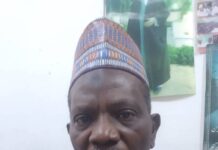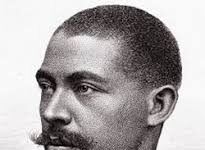Kano city, now metropolis is an important chapter in the history of world urbanization and if we describe Kano as the queen of Hausaland and the princess of western Sudan, we wouldn’t be mistaken.
History makes a place and it is not just the passage of time that makes history but the different layers of cultural attributes that creates the landscape which people are associated with. What makes Kano tick like all great cities, is its ability to absorb its residents into its citizenship thereby getting their loyalty and trust.
In July 1971, the military governor of Kano State, Alhaji Audu Bako laid the foundation stone for the Kano Zoo and by November 1972, it was completed. The late visionary Governor in his opening speech on November 14 said to the gathering “I am surprised to hear from a lot of people, including those who call themselves elites criticizing my idea of establishing a zoo or game reserve and not only that but also making it an item of mockery. I am openly condemning such people as people without foresight and wisdom. I am glad to say that there are not many of them in Nigeria for otherwise, general progress would have been retarded.”
In concluding his speech, he said “In the name of God, I declare the Kano Zoological Garden open for the general public of Nigeria and anybody from outside the country, and I pray that it will serve mankind forever. To the people of Kano State, I hand to you this zoo as an object of pride. Please hold it as an egg. May God help us?”
When Police Commissioner Alhaji Audu Bako the Governor of Kano State commissioned the zoological garden he informed the gathering that the Zoo was the only one of its kind in West Africa and it was the intention of his government ‘to develop this zoo into one of the best in Africa’ The late Audu Bako made the statement above not knowing what we will be discussing 48 years after.

This is a historical preamble to contextualize the issue at hand. I am talking about the perhaps largest protected ecosystem in one of the largest indigenous cities of Africa: the Audu Bako Zoological and Botanical garden located in Kano, Nigeria. The satellite image shows the current status of the area. Note the contrast between the green area and the settled area. The proposed relocation will make the green zone bare too.
Like other important landmarks of this great city, the Kano Zoo is next on the destruction list by Kano State Government.
In the last 21 years, we have witnessed the systematic erasure of Kano’s historical and cultural signatures that gave the city its identity. Its planning system has been debased, the reserved low-density areas are downgraded to high-density areas, the lands of public institutions like the Kano State Polytechnic Daula Hotel and Triumph Publishing Company, have been sold, all the open spaces and green spaces have been converted to large commercial land uses.
All the parks and gardens in the metropolis have been sold, So much mismanagement of land resources is taking place in Kano all in the name of development. One question we wish the State Government will answer is who the buyers of the sold public lands are. It will be great to have a list.
Kano is a dual city where two cities (Indigenous and township) living side by side. With an estimated population of 4-5 million, the city is in utmost need of more green areas. The zoo is perhaps the largest existing green area in the metropolis with a 53-hectare land devoted to plants and animals.
It is amazing that other large city of the world such as New York which is the world’s commercial centre with a population roughly twice as that of Kano metropolis sees the need to maintain a green area despite the need for business premises and the billions they will generate as tax.
The Central park which is the largest and most important public park in Manhattan occupies a whooping 340 hectares of land (6.4 times the size of Kano Zoo) covering about 4km. It was established in 1857 and opened in 1876, it is still there standing and serving mankind. The green spaces in London occupy over 142 hectares.
Take some parks for example Central park is 3.41km2, English garden is 3.75km2, Regent’s park occupies 166 hectares, in fact, London is 40% public green space including 3000 parks. These two cities are commercial centres, yet they understand the importance of vegetation to their survival.
Three weeks ago, the Kano State Commissioner for Culture and Tourism Ibrahim Ahmed announced that the Governor of Kano State has ordered the relocation of Kano Zoological gardens from its current location to Tiga town, Bebeji Local Government because, according to the Governor the present location is inconvenient due to the high population density of the area This, according to him disturbs the animals.
On a soft note, Malam Musa Tanko of Geography Department BUK has asked ‘Who did the animals at Kano Zoo told they’re not comfortable there? What about Trees? Did they also complain?’
He further explained that ‘There is no place in the whole of Kano city that has a high density of vegetation as the Kano Zoological garden. One of the numerous beauties nature has blessed us with is a vegetal cover, comprising of trees, shrubs and grasses which are very much important and necessary for life. Vegetation, especially trees are important to man and his environment in a variety of ways’.
Perhaps that is why the news was received with bad feelings. Some important points worthy of note include the following:
The proposed area is far away from the metropolis and this will reduce the level of patronage especially by primary schools pupils, with the increasing insecurity, it might be difficult for pupils to visit it.
The government did not give a concrete reason other than the street-like reason that zoo animal does not like human noise, No timetable was given.
Most importantly the public was not told what will happen to the place when the animals are transferred.
Noting the antecedents of the Government of selling public parks and gardens, prayer grounds, parking spaces, historical sites and other open and green spaces, every environmentally aware person in Kano will be alarmed.
Not only the citizens of Kano, but even professional bodies like the Nigerian Association of Zoological Gardens and Wildlife Park were also quick to write to the governor alerting him of the dangers of the proposed relocation.
Many individuals have written essays trying to persuade the state Government from the project, people have spoken in the radio and other outlets all in an attempt to draw the attention of the State Government to let the Zoo be. Forestry Association also pleaded with the Government. As at now, we have not heard anything from government other than its hawks who attack responsible citizens who spoke against the proposed relocation.
At this point, it is good to ask the State Government what it intends to do with the Kano Zoo after relocating it. The most likely thing that will happen is that they will clear the place and create a commercial layout.
In doing that, the government will claim that it is doing so to make Kano more commercially viable by building modern malls and creating jobs.
As expected, I had the opportunity to hear a government official saying that the zoo will be converted to a residential-cum commercial area and that not all the trees will be cut off. That the company that will take over the zoo will build the new one at Tiga and will decide what it will do with the old zoo.
Anyway, whatever it is, it is destruction. The world will witness one of the greatest planticide (ecocide) of the century. The implications of this to Nigeria will be enormous. Many environmental groups around the world will mark Kano State red and we will lose goodwill that will last long and probably face sanctions.
It is sad that whenever you talk about ecology and environment or even cultural heritage, the government and its official and unofficial spoke persons will say they are bringing development to Kano thinking that building flyovers or structures is what development is all about as argued by Dr Mahmud Abba of Geography Department, Bayero University Kano ‘Part of the genesis of this problem is our narrow perception of the concept of physical development.
The authorities believe that to achieve physical development every available open space must be converted to the building. Do they forget that every city in the world is made up of three major physical components namely; structures, networks and open spaces? Are they turning a blind eye on the numerous social and ecological services being provided by the zoo?’
In addition, the fallacy that building shops is development: Kano used to be the second major centre of industries and manufacturing in Nigeria, not any more. Without manufacturing Kano has become a dumping ground for manufactured goods from elsewhere. Building shops and malls will not develop the economy rather gradually weakens it.
The emergence of malls, so-called plazas and supermarkets are in reality killing the local businessmen. Kwari market will in some years come become history. All the thousands of people employed there will lose their jobs. The malls owned by multi-nationals, politicians and big businessmen will takeover.
As it has always been to the best of my knowledge, the State Government has no business with Kano businessmen except to collect taxes. So there will be no plan for the thousands that will lose their jobs.
The relocation of the Kano Zoo and Botanical Gardens is uncalled for as many people have argued because if we measure the costs and the benefits we will rather let it be. There are serious implications for relocation.
The implications include among others:
Reduced access:
Moving the zoo to about 75 kilometres away from Kano to Tiga, Bebeji Local Government, many prospective visitors will miss out. Majority of the visitors are school children and taking pupils to a 75 kilometres journey will not only be expensive to parents but also put the lives of our children in danger. This will deny millions of people the opportunity created by Audu Bako to see, learn and enjoy nature. No matter how much money the government will generate from the sale of the land, it can’t be compared to the damage it will cause and the lives of children that will be exposed to risk. The school children are the future of Kano, not the new shops that will be constructed.
Loss of Biodiversity:
Hundred thousands of plants and animals species living in the area will be lost forever. Come to think of the thousands of trees, shrubs, grasses and insects that will be displaced just because someone wants to get money. Kano Zoo according to Dr Mahmud Abba said is ‘a biodiversity hot spot, a repository of endangered plants and animals; the last biological sanctuary in the desert of humans and buildings.
Stress relief destruction:
Many people used the park to release themselves from the daily stress they are experiencing as Dr Mahmud captures ‘The garden provides an avenue for relaxation to thousands of residents of the city. It is also a centre of social interaction amongst the multi-ethnic, multi-cultural society thereby promoting cultural integration and social inclusion in the city’
Exposing people to new diseases:
The destruction of the zoo may expose us to new zoonotic diseases that are thriving in the zoo. One way humans are exposed to new disease-causing microbes is through the destruction of natural habitats Diseases such as COVID-19 might have originated from the destruction of natural habitats.
Loss of clean air:
The thousands of trees in the zoo clean the air, consume all the industrial air emissions from Sharada Industrial Estate and gives a healthy atmosphere in that high-density area thus reducing the risk of respiratory tract infections among the residents around the zoo area. Once the trees are gone, we will see a rise in respiratory tract infections and other pollution-induced conditions. This will not only make the people sick but also add the cost of health care on the people and the government.
Flood control:
The area also provides storm-water ecological service at the interface of the surrounding residential area for many years. Converting the area to other land uses will trigger incessant flood events which may lead to loss of lives and property in the surrounding area.
Exposing Kano to the dangers of Climate Change:
A Biogeographer from Bayero University Kano, Dr. Muhammad Nuraddeen Danjuma has captured this implication aptly when he said ‘The Zoological Garden has been a major carbon sink in the Kano Metropolis.
Interestingly, this characteristic green space constitutes about 24 genera and 14 families of various plants which primarily sink the terrestrial carbon generated by human activity free of charge. In absolute carbon terms, the protection of green space and specifically the avoidance of deforestation deliver the highest carbon saving tasks.
Therefore rather than spending huge billions on carbon sequestration and addressing climate change, it is imperative to keep the protected area intact. In the era of ‘donor fatigue, dwindling revenues and nature fighting back, I am sure the Governor will think twice and save Kano from everlasting implications and risks associated with defamation of this iconic landscape.
According to the 2018 World Air Quality Report, air quality in Kano contains an average mean PM 2.5 concentration of 53.4μg/m3 which is more than 5 times above the maximum limits recommended by the World Health Organization. I am sure should there be the likes of the Garden in the metropolis to play a vital role is air purification; the widespread apparent rates of respiratory tract diseases might be decimated.’ This is a long term effect that will cost the people long after the incumbent government has gone.
Displacement of local traders:
As earlier noted, the new shops that will be built there will displace other local shops that have thrived for years. This means the new structures will be detrimental to the people living in the area.
Options
Now, when you advise a government not to do one thing, it is only fair to give it options. For this reason, we wish to provide options to the State Government if indeed, it is after developing Kano State.
Let the Kano Zoo remain where it is, upgrade it to the international standard since there are already plans for that.
If you must move the zoo, please let the place remain, Kano Central Park, make another history by giving Kano what it deserves.
Leave the zoo in Kano emirate and let other emirates have its world-class zoos, the proposed zoo at Tiga can serve Rano Emirate. We can have one each in Kano, Bichi and Gaya emirates.
Our Prayer
I am calling on the head of the government in Kano to please let the zoo remain. I will refer to the prayers made by Dr Danjuma who in his article wrote ‘Kano State is lucky to have such a religious man as their Governor. Sir, for being outstanding in success stories of Abuja City and most importantly an embodiment of Islam, this destruction to the ecosystem must not take place under your watch.
Such misapplication of force to isolate and devastate the garden will only lead to large-scale environmental perturbations and crises’ This is on behalf of the 15 million inhabitants of Kano metropolis and the citizens of Kano yet unborn.
Conclusion
This write up is one of the many that have been published and one of the many concerns expressed privately and in public. Many feel that we are just wasting our precious time as the government will not listen.
We have written a strong petition to the Kano State Government when they allocated the land near the city wall along BUK road, we have over 100 signatures (over 10 Professors) from the Universities in Kano but the government ignored us and continued. But this will not discourage us from admonishing the government.
What we want to tell every citizen of Kano is that we as scholars have done our part. History will not be unfair to us and lump us with the onlookers. Allah will not hold us accountable for being silent. As for those who because of the meagre amount they will receive and those who are intoxicated with power, their legacy will haunt them and their lines for eternity and Allah will judge them.
Finally, I want to draw the attention of all those in the helm of Kano affairs that in the end they will account to Allah for their actions.
Follow the Neptune Prime channel on WhatsApp:
Do you have breaking news, interview request, opinion, suggestion, or want your event covered? Email us at neptuneprime2233@gmail.com






